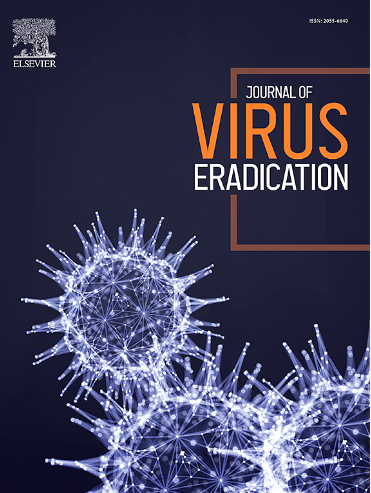实现治愈艾滋病毒的全球议程要求在西非和中非建立一个以研究为治疗的学院
IF 2
4区 医学
Q2 IMMUNOLOGY
引用次数: 0
摘要
尽管全球努力消除作为公共卫生威胁的艾滋病毒,但撒哈拉以南非洲(SSA)仍然是该流行病负担最重的地区,约有70%的艾滋病毒感染者居住在这里,在艾滋病毒治疗研究领域的贡献有限,特别是在西非和中非(WCA)。这一差距主要是由于该地区的研究人员在当地发起和推进艾滋病毒治疗研究方面面临挑战,而法语国家的承诺较少。此外,由于对现有机会的认识有限和语言障碍,早期职业科学家在艾滋病毒治愈研究方面的能力建设仍然受到限制。尽管艾滋病毒非B亚型占全球循环亚型的89%,但治疗研究一直广泛关注B亚型(在美国和欧洲流行)。有趣的是,WCA(被称为具有广泛遗传多样性的艾滋病毒大流行中心)为治疗研究提供了独特的景观,有可能在各种艾滋病毒亚型中推广。这一观点讨论了为WCA建立艾滋病治疗学院的重要性,以支持来自法语国家的科学家、政策制定者和社区利益相关者为全球艾滋病治疗做出贡献。在讨论的基础上,建立“艾滋病毒治愈学院”成为以下方面的标志:(i)提高认识,(ii)建设能力,(iii)解决科学差距,(iv)发展网络,以及(v)促进将艾滋病毒治愈研究纳入国家艾滋病毒议程的宣传和政策简报。该学院被设想为一个中心,促进社区组织、艾滋病毒感染者、研究机构和决策者之间的关系。该中心还将支持该次区域的“倡导治愈”议程,加强多学科方法,以确定解决全球问题的当地艾滋病毒治愈研究重点。最重要的是,WCA的研究重点包括:(i)病毒库的测量和表征;(ii)免疫应答的研究,包括bNAbs、t细胞功能、细胞因子谱和宿主遗传因素;(iii)鉴定精英控制者和后处理控制者;(iv)开发无障碍技术,用于即时艾滋病毒DNA检测、生物标志物检测和潜伏期修饰剂,以支持功能性治愈战略;创新适合低资源环境的具有成本效益和可扩展的治疗干预措施;(vi)通过公民科学加强社区参与,解决伦理问题,并让艾滋病毒感染者参与治疗研究计划的共同设计;(七)建立区域培训平台,如以研究促治疗学院,以加强西非和中非的科学能力和合作。按照国际艾滋病协会(IAS)研究治疗学院的模式,世界艾滋病协会艾滋病毒治疗学院是实现艾滋病毒治疗目标的关键中心,通过地方行动有助于解决全球问题。本文章由计算机程序翻译,如有差异,请以英文原文为准。
Achieving the global agenda toward HIV cure calls for establishing a research-for-cure academy in West and Central Africa
Despite global efforts to eliminate HIV as a public health threat, sub-Saharan Africa (SSA) still harbours about the highest burden of the pandemic, home to around 70 % of people living with HIV with limited contribution in the field of HIV cure research, especially in West and Central Africa (WCA). This gap is mainly due to challenges that researchers of this region are facing in initiating and advancing HIV cure research locally, with lesser commitment from the French-speaking countries. Furthermore, capacity-building of early career scientists on HIV cure research remains constrained due to limited awareness and language barriers to existing opportunities. Even though HIV non-B subtypes represent 89 % of circulating subtypes worldwide, cure research has been extensively focused on subtype B (prevalent in America and Europe). Interestingly, WCA (known as HIV pandemic epicentre with a broad genetic diversity) offers a unique landscape for cure research with a likelihood of generalisability across various HIV subtypes. This viewpoint discusses the importance of establishing an HIV Cure Academy for WCA to support scientists, policymakers and community stakeholders from French-speaking countries in contributing to the global efforts towards HIV cure.
Building on discussions, the establishment of an "HIV Cure Academy" emerges as a hallmark to: (i) raise awareness, (ii) build capacity, (iii) address scientific gaps, (iv) develop networks, and (v) foster advocacy and policy-briefing on integrating HIV cure research into national HIV agenda. The Academy is envisioned as a hub, facilitating relationships between community-based organizations, people living with HIV (PLHIV), research institutions and decision makers. This hub will also champion the "Advocacy for Cure" agenda in the sub-region, enhance multidisciplinary approach to identify local HIV cure research priorities that address the global problem. Of prime importance, research priorities in WCA include: (i) the measurement and characterization of viral reservoirs; (ii) investigation in immune responses including bNAbs, T-cell function, cytokines profiles and hosts genetic factors; (iii) identification of elite and post-treatment controllers; (iv) development of accessible technologies for point-of-care HIV DNA testing, biomarker detection, and latency-modifying agents to support functional cure strategies; (v) innovation in cost-effective and scalable therapeutic interventions suitable for low-resource settings; (vi) the strengthen of community involvement through citizen science, address ethical considerations, and engage PLHIV in the co-design of cure research initiatives; (vii) the establishment of regional training platforms, such as a Research-for-Cure Academy, to enhance scientific capacity and collaboration in West and Central Africa.
Following the model of the International AIDS Society (IAS) Research-for-cure academy, the WCA HIV Cure Academy represents a key hub in achieving the goals of HIV cure, through local actions that contribute to addressing a global problem.
求助全文
通过发布文献求助,成功后即可免费获取论文全文。
去求助
来源期刊

Journal of Virus Eradication
Medicine-Public Health, Environmental and Occupational Health
CiteScore
6.10
自引率
1.80%
发文量
28
审稿时长
39 weeks
期刊介绍:
The Journal of Virus Eradication aims to provide a specialist, open-access forum to publish work in the rapidly developing field of virus eradication. The Journal covers all human viruses, in the context of new therapeutic strategies, as well as societal eradication of viral infections with preventive interventions.
The Journal is aimed at the international community involved in the prevention and management of viral infections. It provides an academic forum for the publication of original research into viral reservoirs, viral persistence and virus eradication and ultimately development of cures.
The Journal not only publishes original research, but provides an opportunity for opinions, reviews, case studies and comments on the published literature. It focusses on evidence-based medicine as the major thrust in the successful management of viral infections.The Journal encompasses virological, immunological, epidemiological, modelling, pharmacological, pre-clinical and in vitro, as well as clinical, data including but not limited to drugs, immunotherapy and gene therapy. It is an important source of information on the development of vaccine programs and preventative measures aimed at virus eradication.
 求助内容:
求助内容: 应助结果提醒方式:
应助结果提醒方式:


